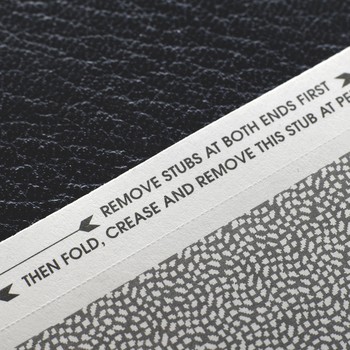The Reason You Should Always Keep Your Payslips
We get it: payslips are less than riveting. However, they’re a lot more important than you realise. What’s more, not keeping them safe and organised could cause you some serious headaches further down the line. Here’s our guide to what your payslips mean and why you should keep them safe. There’s plenty more where that came from. There is a whole range of categories to explore on The Adult Bible, so start browsing.
Unless you’re a freelancer (or a merchant seaman…weirdly) your employee rights state that you’re entitled to a monthly payslip. Essentially, a payslip is a summary of your monthly income. It shows how much you’ve been paid in total and how much has gone towards tax, national insurance and pension contributions. If you’re a university graduate, it’ll also show your student loan repayments. Here’s how to make sense of the figures…
Gross pay – this figure represents your full month’s pay, before any deductions are made. It should include any bonuses or commission.
Variable deductions – this refers to deductions which fluctuate each payday, such as tax or national insurance contributions.
Fixed deductions – these are payments which remain consistent each payday. An example could be your union dues, or repayment of a season ticket loan. Your employer can either detail these deductions on your payslip, or present them as a statement, which must be updated and reissued at the start of every tax year.
Net pay – this figure represents your net earnings after all deductions have been taken off i.e. the money that is yours to keep.
HM Revenue & Customs (HMRC) recommends you hold on to your payslips for as long as possible. Understandably, this may seem like a mammoth task for the average worker as you are likely to be in employment for over 40 years. However, by being organised you’ll save yourself time and effort in the long run. Here’s three reasons why it pays to be methodical...
Applying for a mortgage/loan
When you apply for assistance from a bank or financial institution, these companies will more than likely want to do some background checks on you first. Specifically, they want to know how much you earn, as this indicates not only your eligibility for a loan, but also your ability to make repayments each month. Your payslips are usually the first start; they’re a comprehensive break down of your gross earnings and your net income. Consequently, failing to file them safely will make it much harder to provide your loan supplier with accurate financial information which could, ultimately, result in your application being denied. If you receive your payslips via email – which is becoming an increasingly popular practice – the same rules apply; these should be filed and saved electronically.
Claiming a tax rebate
Whether it’s due to your employer using an emergency tax code, or a change in your circumstances such as switching from full-time to part-time work, there are instances where you can end up overpaying on your tax. If this is the case, you should be notified at the end of every tax year with a letter that states that you’ve paid too much and are entitled to claim it back. However, sometimes overpayments slip through the net and you may have to take the initiative to recover your money.
Now, anyone that has dealt with the grand old institution that is Her Majesty’s Revenue and Customs will understand the grief that not having the correct paperwork in order can cause you; it can be the deal-breaker between a successful claim and your hard-earned money being lost in a labyrinth of government bureaucracy. Keeping your payslips safe will make checking for, and claiming back overpaid tax, so much easier. Firstly, your payslips always state your tax code and how much has been deducted. Therefore, you can use them to see if you’re paying too much or you’re in the wrong tax code. Secondly, your payslip contains important information which you must submit to claim back overpaid tax, such as your gross earnings and the amount of tax taken from you so far. Just like a mortgage or loan application, not having this information to hand will make it very difficult for HMRC to approve your claim, so it’s really in your best interest to keep your payslips safe.
Preventing Fraud
According to a report published last year by fraud prevention service, Cifas, identity theft in the UK has risen 125% since 2007, with almost 175,000 cases recorded in 2017. Whilst there is some debate about how much criminals can do with your payslips alone, there is no doubt that, combined with other sensitive information such as your address and date of birth, it could be the nail in the coffin if they fall into the wrong hands. It may seem trivial, but, in a world where more and more people can easily access information about you, keeping your payslips safe is one of the small steps you can take to limit the chance of your personal information being compromised.
DISCLAIMER: We endeavour to always credit the correct original source of every image we use. If you think a credit may be incorrect, please contact us at info@sheerluxe.com.
